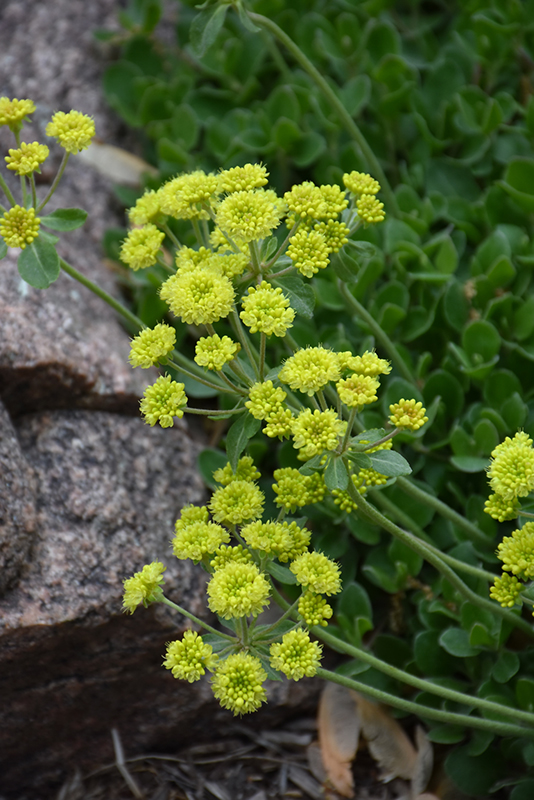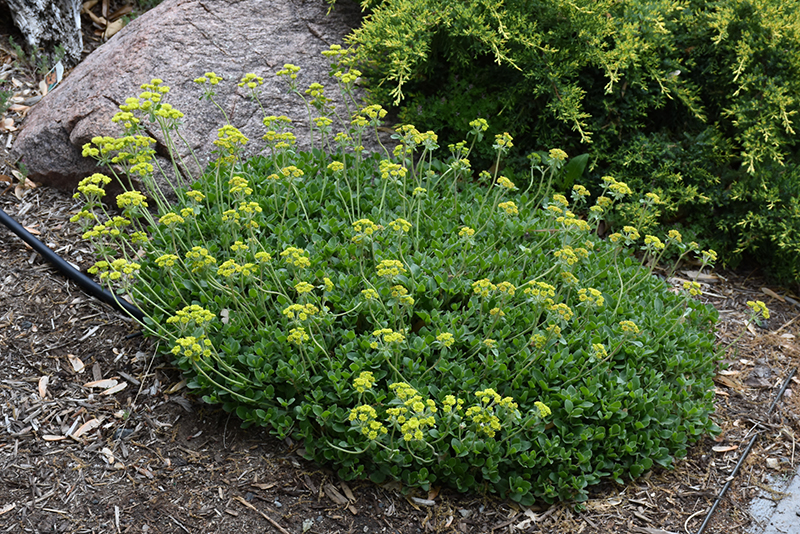Sulphur-Flower Buckwheat
Eriogonum umbellatum
Plant Height: 6 inches
Flower Height: 12 inches
Spread: 12 inches
Sunlight:
![]()
![]()
Hardiness Zone: 3a
Other Names: Sulphur Flower, Wild Buckwheat
Description:
An attractive plant for use in low maintenance landscaping or xeriscaping; a native perennial producing sunny yellow flowers above the foliage in late spring to early summer; excellent for naturalizing
Ornamental Features
Sulphur-Flower Buckwheat features showy clusters of yellow flowers rising above the foliage from late spring to mid summer, which emerge from distinctive scarlet flower buds. The flowers are excellent for cutting. Its tomentose pointy leaves are bluish-green in color. As an added bonus, the foliage turns a gorgeous orange in the fall. The brick red stems can be quite attractive.
Landscape Attributes
Sulphur-Flower Buckwheat is a dense herbaceous perennial with a mounded form. Its medium texture blends into the garden, but can always be balanced by a couple of finer or coarser plants for an effective composition.
This is a relatively low maintenance plant, and is best cleaned up in early spring before it resumes active growth for the season. It is a good choice for attracting bees and butterflies to your yard. It has no significant negative characteristics.
Sulphur-Flower Buckwheat is recommended for the following landscape applications;
- Mass Planting
- Rock/Alpine Gardens
- Border Edging
- General Garden Use
- Groundcover
- Naturalizing And Woodland Gardens
Planting & Growing
Sulphur-Flower Buckwheat will grow to be only 6 inches tall at maturity extending to 12 inches tall with the flowers, with a spread of 12 inches. Its foliage tends to remain low and dense right to the ground. It grows at a medium rate, and under ideal conditions can be expected to live for approximately 10 years. As an herbaceous perennial, this plant will usually die back to the crown each winter, and will regrow from the base each spring. Be careful not to disturb the crown in late winter when it may not be readily seen!
This plant does best in full sun to partial shade. It prefers dry to average moisture levels with very well-drained soil, and will often die in standing water. It is considered to be drought-tolerant, and thus makes an ideal choice for a low-water garden or xeriscape application. It is not particular as to soil pH, but grows best in poor soils. It is highly tolerant of urban pollution and will even thrive in inner city environments. This species is native to parts of North America.


